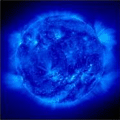|
Session |
Subject |
Chapters |
| 1 |
Introduction to Hazardous Wastes, Hazardous Waste
Characterization and the Regulatory Process.
|
1 and 2 |
| 2 |
Waste Minimization and Resource Recovery
Waste Reduction, Waste Tracking Systems,
and Minimization Process Selection.
|
7 |
| 3 |
Facility Development and Operations. Facility
Types and Operations, Site Selection and
Permitting. Introduction to Physico-Chemical
Treatment Processes.
|
8 and 9 |
| 4 |
Physico-Chemical Treatment Processes.
Selection of the Term Project Topic
|
9 |
| 5 |
Physico-chemical Treatment Processes.
Introduction to Biological Treatment Processes
|
9 and 10 |
| 6 |
Biological Treatment Processes
|
10 |
| 7 |
Exam I
|
|
| 8 |
Biological Treatment Processes.
|
10 |
| 9 |
Stabilization and Solidification, Introduction
to Thermal Processes: Chemistry and
Thermodynamics of Incineration.
|
11 and 12 |
| 10 |
Thermal Processes: Incineration Standards and Incineration Systems.
|
12 |
| 11 |
Land Disposal: Disposal Site, Landfill
Operations, Leachate Collection, Facilities
Design and Development.
|
13 |
| 12 |
Land Disposal: Disposal Site, Landfill
Operations, Leachate Collection,
Facilities Design and Development.
Remedial Investigations, Containment
and Alternative Analysis.
|
13 and 16 |
| 13 |
Thanksgiving Holiday (No classes) |

|
| 14 |
Quantitative Risk Assessment
|
14 |
| 15 |
Exam II |
|
| 16 |
Term Projects Due (Finals Week)
|
|


